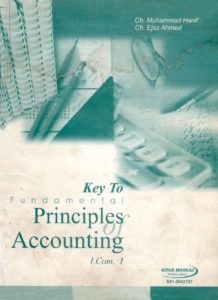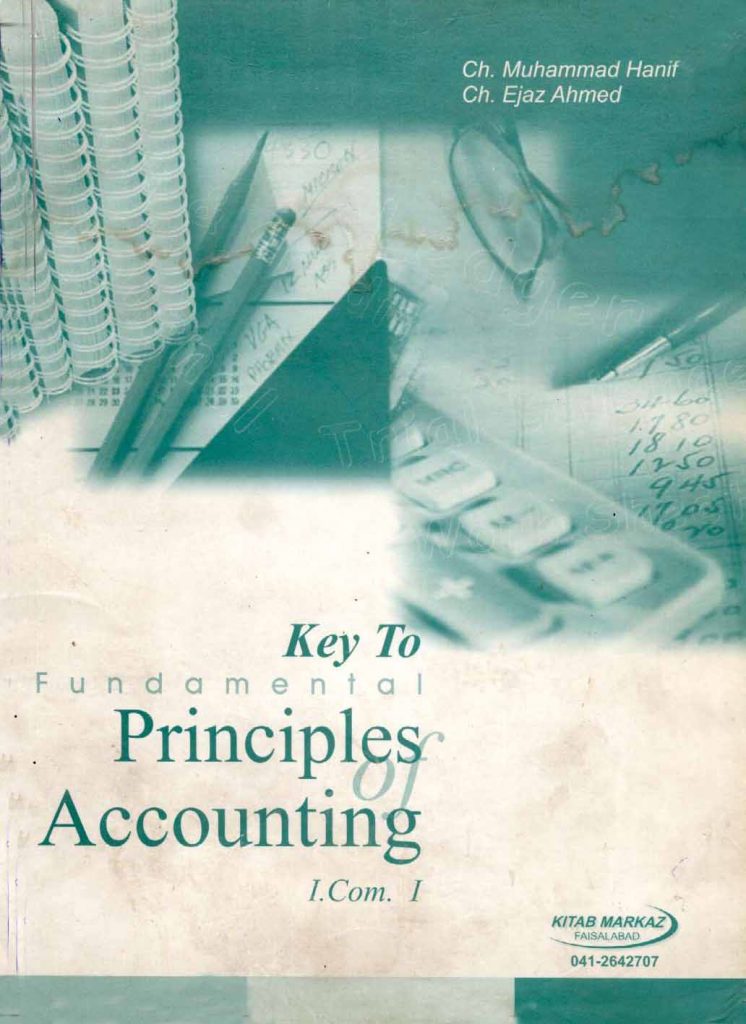
This book is published by ICE Publications and the authors of this book is Ch. Muhammad Hanif.
Some of basic accounting standards were advanced via not unusual utilization. They form the premise upon which present day accounting is based. The first-rate-recognized of these standards are as follows:
Accrual precept. that is the idea that accounting transactions have to be recorded inside the accounting intervals when they absolutely occur, in place of inside the periods whilst there are cash flows associated with them. That is the foundation of the accrual foundation of accounting. It is crucial for the construction of financial statements that show what truly came about in an accounting period, in place of being artificially behind schedule or multiplied by using the associated coins flows. For example, in case you omitted the accrual principle, you will record a price handiest when you paid for it, which would possibly include a prolonged put off due to the payment phrases for the related supplier bill.
Conservatism principle. This is the concept that you ought to report costs and liabilities as quickly as feasible, however to report revenues and property only when you are positive that they will occur. This introduces a conservative slant to the monetary statements which can yield decrease reported income, on account that sales and asset reputation may be behind schedule for some time. Conversely, this principle has a tendency to encourage the recordation of losses earlier, rather than later. This concept can be taken too far, where an enterprise consistently misstates its results to be worse than is realistically the case.
Consistency precept. That is the concept that, when you adopt an accounting principle or approach, you ought to maintain to use it till a demonstrably better precept or method comes along. Not following the consistency principle method that a business could continually jump between distinctive accounting treatments of its transactions that makes its long-term financial consequences extremely hard to figure.
Price principle. That is the idea that an enterprise ought to best document its belongings, liabilities, and fairness investments at their original buy fees. This precept is becoming much less valid, as a host of accounting standards are heading in the course of fixing belongings and liabilities to their truthful values.
Financial entity principle. That is the idea that the transactions of an enterprise need to be stored break away those of its owners and different agencies. This prevents intermingling of property and liabilities among multiple entities, which can purpose big difficulties when the financial statements of a fledgling business are first audited.
Full disclosure precept. That is the idea that you ought to consist of in or alongside the financial statements of a business all of the statistics that could affect a reader’s understanding of those financial statements. The accounting requirements have substantially amplified upon this idea in specifying a big number of informational disclosures.
Going concern precept. This is the idea that an enterprise will remain in operation for the foreseeable future. Which means that you would be justified in deferring the recognition of a few prices, including depreciation, till later durations. Otherwise, you would have to apprehend all prices at once and not defer any of them.
Matching principle. That is the idea that, when you file sales, you should record all associated charges at the identical time. Thus, you price inventory to the value of products offered at the equal time that you document sales from the sale of those inventory items. That is a cornerstone of the accrual basis of accounting. The coins basis of accounting does no longer use the matching the precept.
Materiality principle. That is the idea which you must record a transaction within the accounting records if now not doing so might have altered the choice making system of a person studying the corporation’s financial statements. This is quite an indistinct concept this is hard to quantify, which has led some of the greater picayune controllers to document even the smallest transactions.
Financial unit principle. This is the idea that an enterprise ought to most effective record transactions that can be stated in phrases of a unit of forex. as a result, it is simple sufficient to file the acquisition of a hard and fast asset, since it changed into sold for a selected charge, while the price of the first-class manipulate system of a commercial enterprise isn’t recorded. This idea keeps a enterprise from accomplishing an excessive degree of estimation in deriving the fee of its belongings and liabilities.
Reliability principle. That is the idea that most effective the ones transactions that can be tested must be recorded. As an instance, a provider bill is solid evidence that an expense has been recorded. This idea is of top interest to auditors, who’re constantly in search of the evidence supporting transactions.
Revenue popularity principle. This is the idea that you ought to best understand sales while the commercial enterprise has appreciably finished the earnings system. So many human beings have skirted around the fringes of this concept to dedicate reporting fraud that an expansion of general-placing bodies have developed a huge quantity of records about what constitutes right revenue recognition.
Term precept. That is the concept that an enterprise have to file the consequences of its operations over a well-known time frame. This could qualify because the most manifestly apparent of all accounting ideas, however is supposed to create a standard set of similar intervals, which is useful for trend evaluation.
Those concepts are incorporated into a number of accounting frameworks, from which accounting standards govern the treatment and reporting of enterprise transactions.

